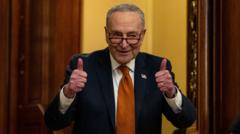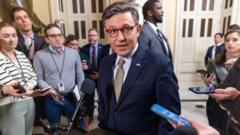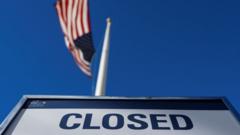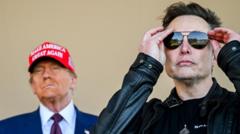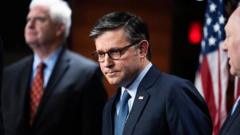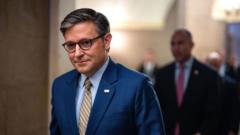Amidst power outages and an uncertain political landscape, Cuba's tourism industry braces for potential setbacks as Canadian tour operators reconsider their offerings. The combination of electrical infrastructure woes and the threat of stricter U.S. sanctions raise concerns about future visitor numbers and economic stability.
Cuba’s Tourism Industry Faces Dual Challenges: Blackouts and Political Uncertainty

Cuba’s Tourism Industry Faces Dual Challenges: Blackouts and Political Uncertainty
Recent blackouts and potential shifts in U.S. policy under Donald Trump's administration threaten to undermine Cuba's tourism sector, heavily reliant on Canadian visitors.
Cuba's tourism industry is increasingly vulnerable as it confronts both operational challenges and political uncertainties. The island, cherished for its sun-soaked paradises like Varadero, relies heavily on Canadian "snowbirds" seeking refuge from North America's frigid winters. Almost one million Canadians flocked to Cuba last year, making them the largest group of international visitors, especially as travel from the U.S. remains restricted due to ongoing economic embargoes.
This dependency has been underscored by a recent decision from Sunwing Vacations Group, a leading Canadian travel operator, to eliminate 26 hotels from its portfolio after a series of debilitating blackouts across the island. A nationwide blackout in late October, stemming from Cuba's aging energy systems, was compounded by further outages imposed by hurricane-related damages. These developments have heightened consumer apprehensions, leading Sunwing to pivot its marketing towards alternative Caribbean destinations such as the Dominican Republic and Colombia.
The ramifications for Cuba are stark. With tourism acting as the island’s cornerstone for economic sustenance, the redirection of tourist interest away from Cuba is problematic. Lessner Gómez, director of the Canadian arm of the Cuban Tourism Board, has emphasized the government's commitment to restoring confidence through improved infrastructure and services, especially during the crucial winter season.
This commitment faces headwinds not only from natural calamities but also from the potential reconfiguration of U.S.-Cuba relations with Donald Trump’s re-election. Observers note that if Trump maintains the hardline stance against Cuba, particularly with senior figure Marco Rubio taking charge of foreign relations, the consequences could be severe. A more punitive policy could include stricter sanctions, cessation of commercial flights, or even embassies closing, which would significantly restrict tourism flows.
Cuban political analyst Rafael Hernández suggests that current U.S. policy is marked by contradictions: while there is some encouragement for private economic initiatives, the legislative landscape remains frozen, curtailing meaningful engagement. The anticipation surrounding Rubio suggests a pivot towards a strategy focused on maximizing pressure against Cuba, further jeopardizing the country's economic prospects especially amongst its tourism sector.
Tourism data reflects a drastic decline since the record high of five million visitors during the Obama administration. Questions are now being raised regarding the sustainability of the Cuban tourism model, as the government has reportedly invested a substantial portion of its budget in developing hotel infrastructure while neglecting to modernize its energy sectors. Economist Ricardo Torres has pointed out the impracticality of prioritizing tourism when the foundational electricity required to maintain these ventures is lacking.
Through these turbulent times, Cuba is still viewed as an alluring destination rich in cultural assets like vibrant music, historic sites, classic cars, and traditional cigars. Nevertheless, as evidenced by Sunwing's decisions, tourists are becoming increasingly wary of experiencing the island's charm amid deteriorating conditions. The crossroads at which Cuba now stands highlights a complex interplay of natural, economic, and geopolitical challenges that will require careful navigation in the months to come.

